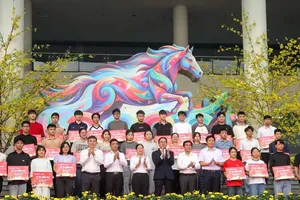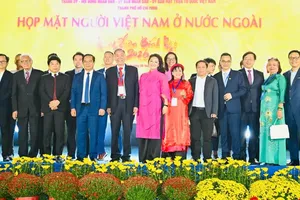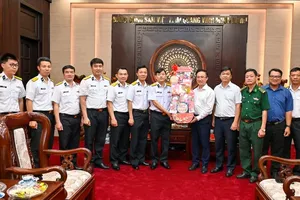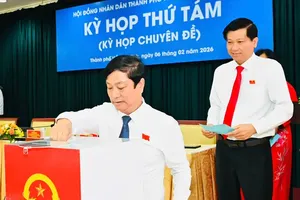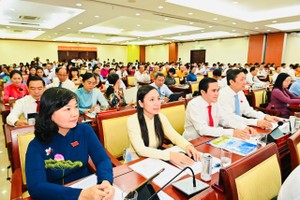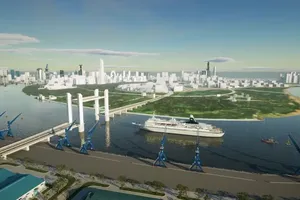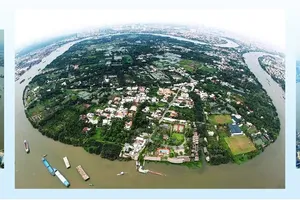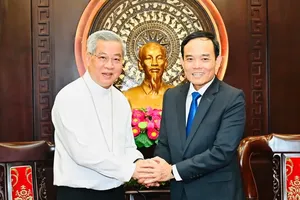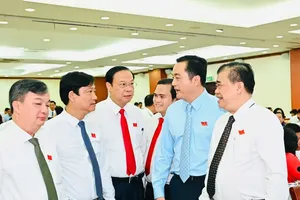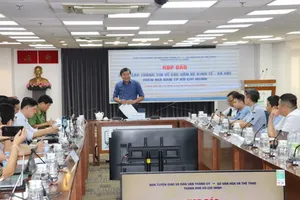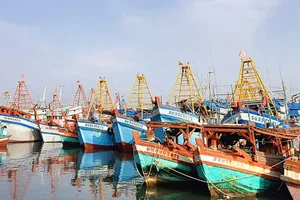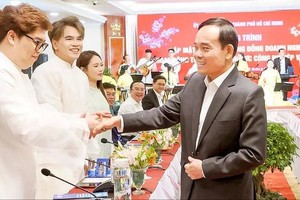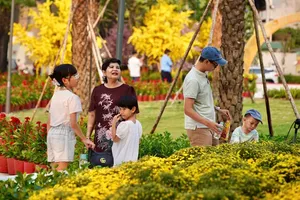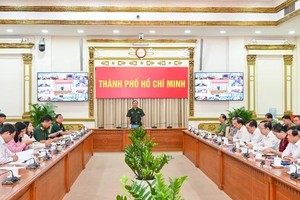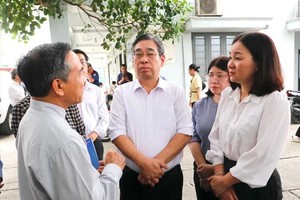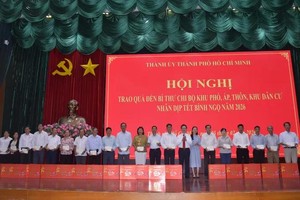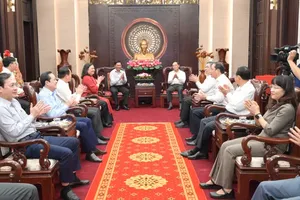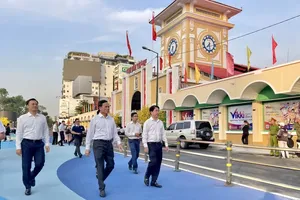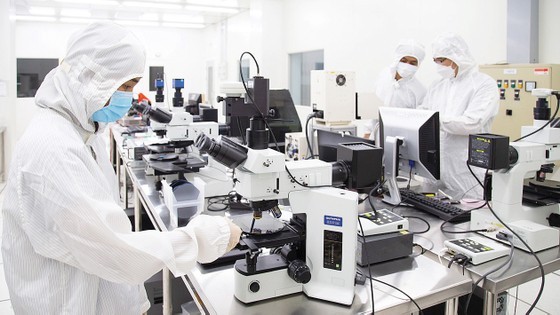 |
Developing and manufacturing microchips in Saigon Hi-tech Park |
Clause 8 of Article 5 in Resolution 98 stipulates mechanisms and policies to unlock resources for HCMC Finance and Investment State-owned Co. (HFIC), such as increasing the charter capital from equitizing 100-percent state-owned companies in the city or taking the remaining profit of HFIC after allocating funds. HCMC also receives public investments for interest rate support to projects approved by HFIC to loan money for socio-economic growth.
HFIC’s General Director Le Ngoc Thuy Trang informed that her company has reviewed all possible financial resources to implement those policies. It is developing a capital plan by balancing current resources to ensure the scale of its capital to invest in socio-economic projects in HCMC.
Resolution 98 allows the HCMC People’s Council to allocate public investments from the city budget for interest rate support to projects approved by HFIC to loan money for socio-economic growth. Therefore, the company is cooperating with state departments and agencies to prepare suitable interest rate support to such projects.
Also, HFIC is working with the HCMC Finance Department for the mobilization of both domestic and foreign capital sources of the Government for infrastructure projects in the city.
In addition, HFIC has been studying mechanisms and policies allowed by Resolution 98 for it to invest in infrastructure projects in HCMC, such as the piloting model of Transit Oriented Development (TOD); the green, circular, and digital economy models. It is also considering its participation in sports and culture projects under the Public-Private Partnership (PPP) model.
General Director Trang commented that innovation has been defined as the priority in HCMC. In the upcoming September meeting, the HCMC People’s Committee is going to present to the HCMC People’s Council for approval of a policy for total interest rate support to innovative startup projects, with the maximum loan capital of VND200 billion (US$8.3 million) per project from the city budget to receive such support.
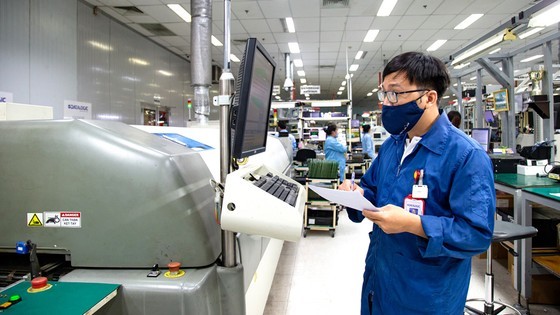 |
Datalogic Vietnam Co. is operating in Saigon Hi-tech Park (Photo: SGGP) |
The matter of green energy has attracted much interest lately. Chairman of the Can Gio District People’s Committee Nguyen Van Hong reported that the district has received offered from many investors for wind power projects installed offshore in the sea of the district. Other clean energy types like solar power and biomass power are also included in the district’s plan until 2030. For instance, after in-depth research, Can Gio District is now confident to welcome investors in biomass power from domestic solid waste.
This district also considers the growth of green traffic via electric vehicles, the afforestation process in association with carbon credits, the introduction of eco-tourism combined with experiencing One Commune One Product (OCOP) merchandise.
Chairman Hong said that his district has over 33,000ha of mangrove forest, recognized by UNESCO to be the first world biosphere reserve in Vietnam in 2000. With the pilot of a financial mechanism for solutions to reduce greenhouse gas emissions and create carbon credits, Resolution 98 offers a valuable chance for the district to earn revenue for its budget. This has been mentioned by Vice Chairman Truong Minh Huy Vu of the HCMC Institute for Development Studies as a novel method to develop HCMC.
Resolution 98 greenlights the use of rooftops of public non-profit units and state office buildings satisfying technical requirements for the setting-up of solar panels to serve the energy needs of those buildings, which will be applied in Can Gio District.
Chairman Pham Quoc Bao of the Members’ Council of Vietnam Electricity – HCMC shared that at present, HCMC has no local energy source. Therefore, the installation of solar panels on the rooftop of state office buildings and public non-profit units is vital in ensuring electricity security and reducing the need to transmit electricity from outside to supply the city’s power demands.
By 2022, the capacity of solar panels set up on rooftops in HCMC had only accounted for 3.7 percent of the national one. Since the potential of this aspect in the city is extremely high, the city's installation of rooftop solar power is a pioneer act to promote businesses and households to do the same.
According to the HCMC departments of Transport and Planning & Investment, the projects to be implemented in HCMC in the near future are as follows:
1. Reviewing BOT-contract 5 projects on current roads with the total capital of VND37 trillion ($1.54 billion):
_Upgrading and expanding National Highway No.13
_Upgrading and expanding National Highway No.1
_Upgrading and renovating National Highway No.22
_Expanding the North-South route
_Building Binh Tien Bridge
2. Reviewing 3 BT projects with the total capital of VND10 trillion ($415.2 million):
_Building Phan Van Hon Parallel Street
_Expanding Ung Van Khiem Street
_Construction roundabouts at the Martyrs' Monument and at Bon Xa Intersection
3. Launching PPP projects in the fields of culture-sports, healthcare, education that are expected to attract an investment of VND20 trillion ($830.4 million)
4. Launching projects to complete Ring Road No.2 and to build Ring Road No.4
5. Launching projects that attract private investment amounts of billions of US$:
_Can Gio International Transshipment Port
_Microchip production plants
_Residential buildings
6. Completing the city’s metro routes with a total length of 220km by 2035.
